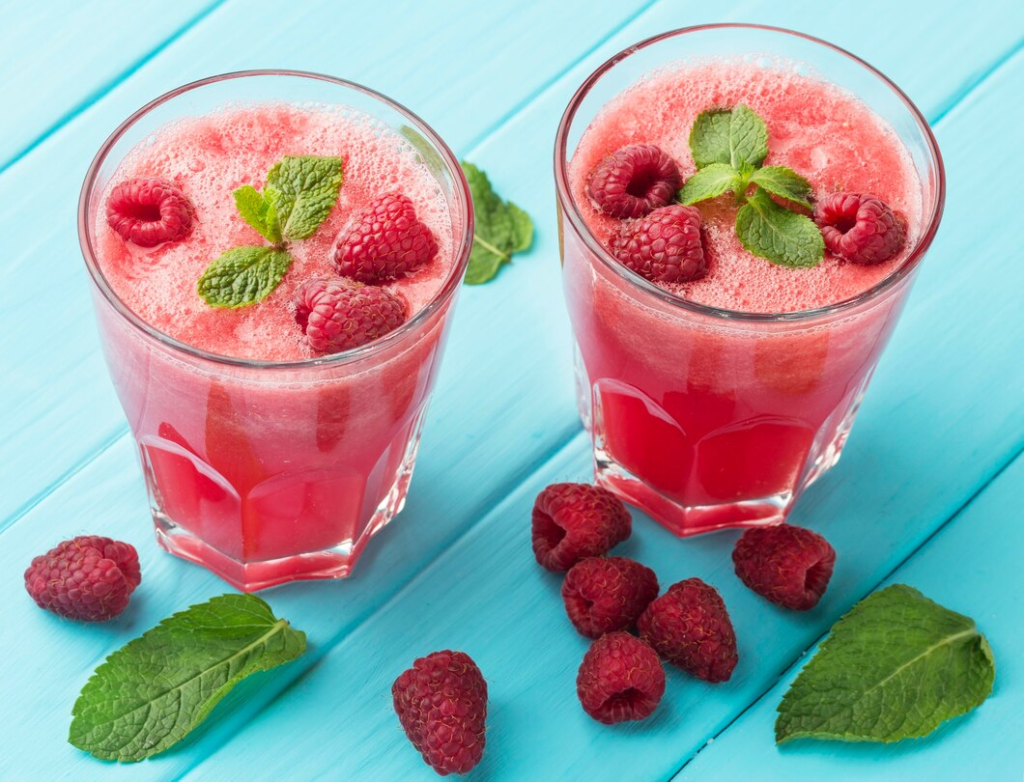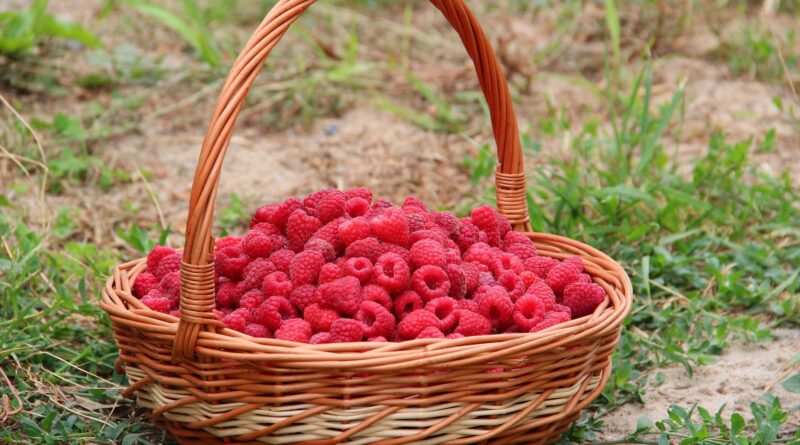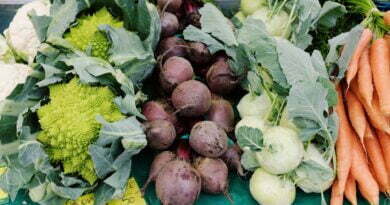Organic Raspberry Growing Guide: Tips, Varieties, and Health Benefits for Allotment Owners
As an allotment owner, growing raspberries can be a delightful addition to your plot. Not only do they offer a bountiful harvest, but they also provide a range of health benefits and versatile culinary uses. In this guide, we will walk you through the process of growing raspberries, including choosing varieties, cultivation tips, health benefits, and meal ideas.
Varieties of Raspberries
Choosing the right variety of raspberries is crucial to ensure a successful harvest. There are two main types of raspberries: summer-bearing and ever-bearing, each with its own unique growing season and characteristics.
Summer-Bearing Raspberries
Summer-bearing raspberries produce a single, large crop in early to midsummer. These varieties are known for their robust flavor and high yield. Some popular summer-bearing varieties include:
- ‘Autumn Bliss’: Known for its large, juicy berries and disease resistance, making it a reliable choice for many gardeners.
- ‘Tulameen’: Renowned for its sweet flavor and firm texture, perfect for fresh eating or making preserves.
- ‘Glen Ample’: Offers a high yield of large, flavorful berries and is known for its resistance to common raspberry diseases.
Ever-Bearing Raspberries
Ever-bearing raspberries, also known as fall-bearing or primocane raspberries, produce two crops per year. The first crop appears in early summer, and the second, typically larger crop, comes in late summer or early fall. Recommended ever-bearing varieties include:
- ‘Heritage’: A popular variety known for its excellent flavor, high yield, and hardiness. It produces firm, medium-sized berries.
- ‘Polka’: Praised for its large, flavorful berries and extended harvest season, making it a favorite among home gardeners.
- ‘Fallgold’: Unique for its golden-yellow berries, which are sweet and aromatic. It offers a delightful visual and culinary addition to any garden.

Cultivation Tips for Growing Raspberries:
- Location and Soil:
Raspberries thrive in full sun, so select a spot on your allotment that receives at least six hours of direct sunlight daily. They prefer well-drained soil with a pH range of 5.5 to 6.5. Before planting, prepare the soil by removing weeds and incorporating compost or well-rotted manure to improve fertility and drainage. - Planting:
Raspberries are typically planted as bare-root or container-grown plants. Plant them in early spring or late autumn when the soil is moist and workable. Dig a hole wide and deep enough to accommodate the root ball. Space the plants about 60cm apart in rows that are 1.8 to 2.4 meters apart. Plant them at the same depth as they were previously growing. - Support:
Raspberries benefit from support to keep their canes upright and prevent them from sprawling on the ground. Choose a support system that suits your needs, such as a trellis, fence, or wire supports. Install the support system before planting the raspberries. As the canes grow, tie them to the support using garden twine or soft plant ties. - Watering and Mulching:
Raspberries require regular watering, especially during dry spells. Apply water at the base of the plants to keep the soil consistently moist, particularly during the flowering and fruiting stages. Avoid overwatering, as it can lead to root rot. Apply a layer of organic mulch, such as straw or wood chips, around the base of the plants to conserve moisture, suppress weeds, and provide nutrients. - Fertilising:
Raspberries benefit from regular fertilisation to promote healthy growth and fruit production. In early spring, before new growth emerges, apply a balanced fertiliser or well-rotted compost around the base of the plants. Follow the manufacturer’s instructions for the appropriate dosage. - Pruning:
Pruning is essential for raspberry maintenance and optimal fruit production. For summer-bearing varieties, prune the canes that have fruited to ground level in late autumn or early spring. These are the canes that have produced berries in the previous season. Leave the new, green canes that will bear fruit in the upcoming season. For ever-bearing varieties, cut back the canes that have fruited in autumn, leaving the new canes for the following year’s crop. Consult pruning guides specific to your raspberry variety for detailed instructions. - Pest and Disease Management:
Raspberries can be susceptible to various pests and diseases, including aphids, raspberry beetles, and fungal infections. Monitor your plants regularly for signs of infestation or disease. If necessary, use organic pest control methods, such as insecticidal soap or neem oil, to manage pests. Ensure good air circulation around the plants by spacing them adequately and removing any diseased or damaged canes promptly. - Harvesting:
Raspberries are ready for harvest when they are fully colored and easily detach from the plant with a gentle tug. Depending on the variety, harvesting times can vary, but generally, summer-bearing raspberries are ready from mid to late summer, while ever-bearing varieties produce fruit from summer to fall. Harvest the ripe berries regularly to encourage further fruiting.

Health Benefits
Raspberries are not only delicious but also packed with numerous health benefits. They are a rich source of antioxidants, dietary fiber, vitamins C and K, and minerals like manganese. These nutrients contribute to improved immune function, heart health, digestion, and brain function. Let’s delve deeper into the specific health benefits of consuming raspberries.
Rich in Antioxidants
Raspberries are loaded with antioxidants, including quercetin and ellagic acid, which help protect the body against oxidative stress and inflammation. These antioxidants neutralise harmful free radicals, reducing the risk of chronic diseases such as cancer, heart disease, and neurodegenerative disorders. The high levels of anthocyanins in raspberries, which give them their vibrant red color, are particularly effective in fighting inflammation and protecting cells from damage.
High in Dietary Fiber
Raspberries are an excellent source of dietary fiber, with one cup providing about 8 grams. This high fiber content promotes healthy digestion by adding bulk to the stool and preventing constipation. Additionally, fiber helps regulate blood sugar levels by slowing the absorption of sugars, making raspberries a suitable choice for people with diabetes. Consuming fiber-rich foods like raspberries also supports weight management by promoting a feeling of fullness and reducing overall calorie intake.
Boosts Immune Function
Vitamin C is essential for a robust immune system, and raspberries are an excellent source of this vital nutrient. One cup of raspberries provides over 50% of the recommended daily intake of vitamin C, which aids in the production of white blood cells and enhances the body’s ability to fight infections. Vitamin C also acts as an antioxidant, protecting immune cells from damage by free radicals.
Supports Heart Health
Raspberries contribute to heart health in several ways. The antioxidants in raspberries help reduce inflammation and oxidative stress, both of which are linked to cardiovascular disease. The dietary fiber in raspberries can help lower cholesterol levels by binding to cholesterol in the digestive system and preventing its absorption into the bloodstream. Additionally, potassium, a mineral found in raspberries, helps regulate blood pressure by balancing the effects of sodium.
Enhances Brain Function
The antioxidants and anti-inflammatory compounds in raspberries also benefit brain health. Studies have shown that these compounds can help improve memory and cognitive function by reducing oxidative stress and inflammation in the brain. The anthocyanins in raspberries have been linked to a lower risk of age-related neurodegenerative diseases, such as Alzheimer’s disease and dementia.
Promotes Healthy Skin
Raspberries are rich in vitamins C and E, both of which are essential for healthy skin. Vitamin C helps in the production of collagen, a protein that keeps skin firm and youthful. The antioxidants in raspberries protect the skin from damage caused by UV rays and environmental pollutants, reducing the signs of aging such as wrinkles and fine lines. Applying raspberry extract topically can also help soothe inflammation and irritation, making it beneficial for people with sensitive or acne-prone skin.
Provides Essential Nutrients
In addition to vitamins C and K, raspberries are a good source of several essential nutrients, including manganese, magnesium, and folate. Manganese is important for bone health and metabolism, while magnesium plays a crucial role in muscle and nerve function, blood sugar control, and blood pressure regulation. Folate is essential for DNA synthesis and repair, making it particularly important during periods of rapid growth, such as pregnancy and adolescence.

Meal Ideas:
Raspberries offer a versatile addition to a wide range of meals and dishes. Here are a few ideas to enjoy your raspberry harvest:
- Fresh Enjoyment: Savor the sweet and tart flavors of freshly picked raspberries on their own as a healthy snack or add them to breakfast cereals, yogurt, or oatmeal.
- Desserts: Use raspberries to create delectable desserts like raspberry pies, tarts, or crumbles. They also make a delightful addition to cakes, muffins, and pancakes.
- Jams and Preserves: Preserve the flavors of summer by making raspberry jams, jellies, or preserves. These can be enjoyed on toast, scones, or as a topping for desserts.
- Smoothies: Blend raspberries with other fruits, yogurt, and a liquid of your choice to create refreshing and nutritious smoothies.
- Salads: Add a burst of color and flavor to salads by incorporating raspberries into green salads or fruit salads. They pair well with greens, cheese, nuts, and vinaigret.

Growing raspberries on your allotment can be a fulfilling and rewarding experience. By following the cultivation tips provided, you can create an ideal environment for your raspberry plants to flourish and produce an abundant harvest. From selecting the right location and preparing the soil to providing support, proper watering, and regular pruning, each step plays a crucial role in ensuring the success of your raspberry cultivation.
Raspberries not only offer a burst of delicious flavor but also come with numerous health benefits. Packed with antioxidants, dietary fiber, vitamins, and minerals, they contribute to improved immune function, heart health, digestion, and brain function. Incorporating raspberries into your meals and recipes allows you to savor their delightful taste and reap their nutritional advantages.
From enjoying freshly picked raspberries as a healthy snack to using them in desserts, jams, smoothies, and salads, the culinary possibilities are endless. Whether you choose summer-bearing or ever-bearing varieties, the sweet and tangy flavors of raspberries will enhance your culinary creations and add a touch of freshness to your dishes.
By dedicating time and effort to growing raspberries on your allotment, you not only gain access to an abundant supply of delicious fruits but also connect with nature, experience the joy of gardening, and create a sustainable and rewarding hobby. So, roll up your sleeves, plant those raspberry canes, and embark on a fruitful journey of growing your own raspberries on your allotment. Enjoy the process and the delightful taste of homegrown raspberries straight from your garden to your table.




